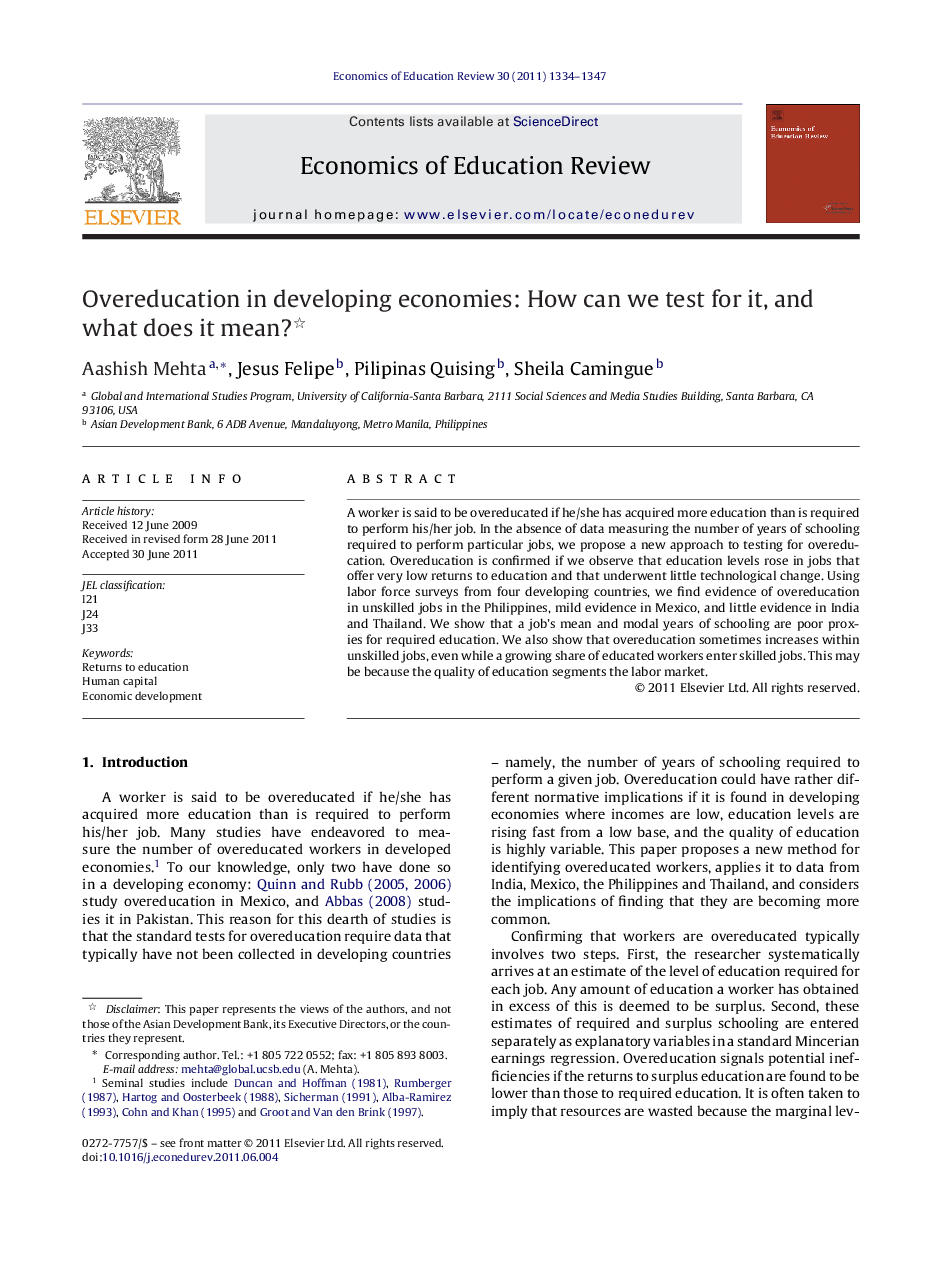| کد مقاله | کد نشریه | سال انتشار | مقاله انگلیسی | نسخه تمام متن |
|---|---|---|---|---|
| 354526 | 1434838 | 2011 | 14 صفحه PDF | دانلود رایگان |

A worker is said to be overeducated if he/she has acquired more education than is required to perform his/her job. In the absence of data measuring the number of years of schooling required to perform particular jobs, we propose a new approach to testing for overeducation. Overeducation is confirmed if we observe that education levels rose in jobs that offer very low returns to education and that underwent little technological change. Using labor force surveys from four developing countries, we find evidence of overeducation in unskilled jobs in the Philippines, mild evidence in Mexico, and little evidence in India and Thailand. We show that a job's mean and modal years of schooling are poor proxies for required education. We also show that overeducation sometimes increases within unskilled jobs, even while a growing share of educated workers enter skilled jobs. This may be because the quality of education segments the labor market.
► A new approach is proposed for testing for overeducation in developing countries.
► Rising education levels in technologically stagnant unskilled jobs signal overeducation.
► There is evidence of overeducation in unskilled jobs in the Philippines.
► Occupation mean and modal years of schooling are poor proxies for required education.
► Overeducation can coexist with rising skills demand if education quality is variable.
Journal: Economics of Education Review - Volume 30, Issue 6, December 2011, Pages 1334–1347